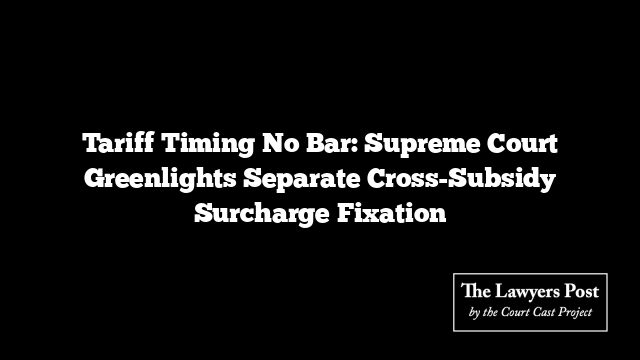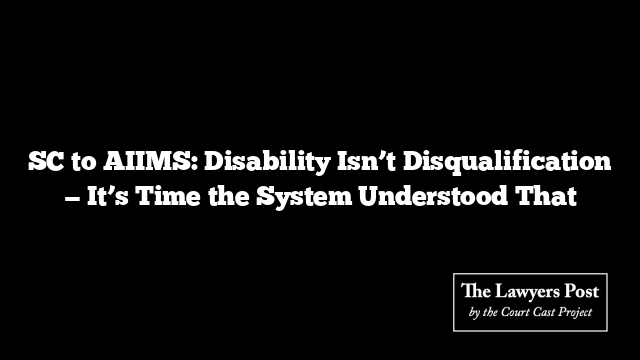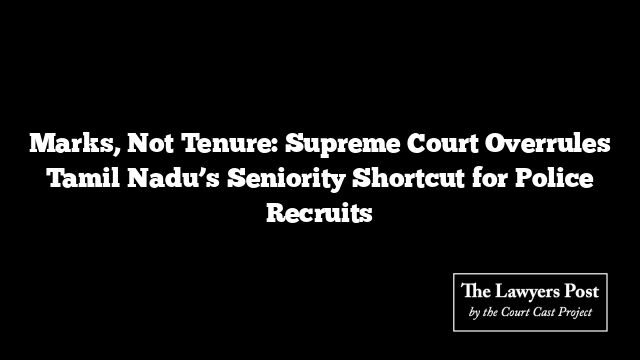In a ruling that rewires the way electricity surcharges are handled, the Supreme Court has declared that Cross-Subsidy Surcharge (CSS) — a charge levied on consumers opting for open access electricity — need not be determined at the same moment as tariff rates, so long as it’s based on the prevailing tariff for the relevant financial year.
The apex court’s bench, featuring Justices Abhay S. Oka and A.G. Masih, overturned a decision by the Appellate Tribunal for Electricity (APTEL), which had previously sided with industrial power consumers. APTEL had taken issue with the Rajasthan State Electricity Regulatory Commission’s (RERC) decision to fix CSS separately, arguing that the timing was improper. The Supreme Court disagreed.
The ruling made clear that what matters is substance over simultaneity. Regulation 90 of the Rajasthan Electricity Tariff Rules, 2014, allows CSS to be calculated independently, as long as it reflects the tariff realities of that financial year. There’s no legal demand for a synchronized dance between tariff and surcharge.
“The CSS can ride alongside tariff orders, but it doesn’t have to,” the Court stated. “Regulation 90 is clear — the surcharge must be tethered to the tariff in force, not its publication date.”
CSS is a critical mechanism: it offsets the financial hit taken by distribution companies when high-paying consumers sidestep them by sourcing electricity elsewhere. In this case, the Rajasthan Textile Mills Association had done just that, prompting Jaipur Vidyut Vitaran Nigam Ltd. (JVVNL) to demand the surcharge.
The textile group challenged the CSS, contending it should’ve been pegged to annual tariff revisions, not floating on its own timeline. APTEL agreed, slamming RERC’s move as legally shaky and contrary to the goal of gradually reducing cross-subsidies under the Electricity Act.
But the Supreme Court saw the case differently. It zeroed in on a tariff order dated September 22, 2016 — still valid through November 2017 — as the lawful basis for the CSS determined on December 1, 2016. There was no breach, the court said, because the underlying tariff was still active.
In fact, the Court noted that a fresh CSS was later computed with the next tariff order in November 2017. So, the one set in December 2016 had a legitimate shelf life and did not retroactively burden consumers.
The Court concluded that APTEL’s view was legally off-mark, reinstating the December 2016 order and confirming it remained valid until replaced in November 2017.
With that, the appeal was allowed, restoring JVVNL’s right to collect the disputed surcharge.





